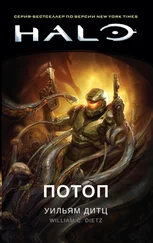“Yes!” a man shouted, as he stood. “God bless President Sloan!”
“There will be no demonstrations,” Hollings said sternly. “Escort that man out. Senator Pickett? Please proceed.”
Sloan’s proposal was anything but secret. He’d been saying the same things over and over for weeks. So Pickett’s people had been able to prepare a point-by-point response.
“Good evening,” Pickett said. “It’s a pleasure to be here even if the man standing next to me favors an imperial presidency and a weak Congress. Is Mr. Sloan our chief executive? Or has he declared himself king?”
There was fire in Pickett’s eyes as she scanned the audience. “Were any of us allowed to vote for or against the so-called ‘war of national reunification’? No. According to Mr. Sloan, and his Attorney General, the Insurrection Act of 1807 gives him all the authority he needs to turn family against family and state against state.
“So without any sort of vote by the House or Senate, Mr. Sloan launched an airborne assault on Richton, Mississippi, where we lost a battalion of Army Rangers. I want to change that. I want to give you a voice in what happens next. If I’m elected, I will ask Congress to change the Constitution so as to make sure that the people who work hard and pay taxes will make the decisions! And once the changes I propose are in place, voters will shift the balance of power from Emperor Sloan to the men and women of the United States Congress. Then, if Congress wants to spend four trillion dollars and fight a war with the South, we will do so. My job, which is to say the president’s job, will be to implement what your elected representatives choose to do.
“Yes,” Pickett added, as she raised a hand, “I know this would represent a change. And that Emperor Sloan doesn’t want to change. But new situations demand new solutions! And I stand ready to welcome the future rather than attempt to block it. Thank you!”
Pickett’s statement was so practiced that only one second remained on the clock when the last word left her mouth. The questions were tough, but predictable. “Will you raise taxes?”
Sloan answered, “Yes, I would. Upper-income taxpayers will reap huge benefits from the America Rising Initiative, so it makes sense for them to pay more.”
Pickett replied by saying, “No. By reducing the size of government, I will lower taxes.”
And so it went. Finally, when all of the questions had been answered, it was time for Sloan to deliver his three-minute summary. His eyes scanned the room. “Let’s take a moment to consider what will happen to this country if Senator Pickett wins. Rather than rebuild the country, and seek to unify it, she wants to change our time-honored Constitution. To do that, she would need commanding majorities in both Houses of Congress… And that’s unlikely to happen.
“But we’re talking about a fantasy world, right? So let’s suppose that newly elected President Pickett has the votes she needs. Months would pass while members of both Houses debate the exact wording of each proposed change. Then, supposing Congress can reach an agreement, at least three-fourths of the state legislatures would have to approve it.
“Ladies and gentlemen… It took 202 years to ratify a commonsense amendment that keeps congressional salary increases from being implemented until after the next crop of representatives comes into office.” That comment produced widespread laughter.
“Now,” Sloan said, “ask yourself a simple question… Who would benefit from such a delay? You? Or the oligarchs who run the New Confederacy and need more time in which to consolidate their power? The answer is obvious. Thank you.”
The possibility that the New Whigs might feel an affinity for the New Order had been voiced before. But the direct, unapologetic attack from Sloan was sufficient to elicit gasps of surprise from some members of the audience. And that gave Sloan a sense of satisfaction. It was a strong close… And Pickett’s response turned out to be little more than a list of lame denials. So when Sloan left the stage, he was in a good mood. Press Secretary Doyle Besom was waiting. “That was an outstanding summary, Mr. President… You dropped the hammer on her.”
Sloan frowned. “I hear the words… But they don’t match the expression on your face.”
Besom shrugged. “Pickett’s mike was on. So the entire country heard what she said, and that’s what people are talking about. Half the reporters left before your closing statement in order to scoop the competition, and you can bet the headline writers are having a field day. ‘The president hands Pickett a win.’ ‘Senator Pickett gives the president a hand.’ That sort of thing. I’m sorry, Mr. President… Politics sucks.”
Sloan sighed, and his spirits fell. “You got that right… Let’s get out of here.” Meanwhile, south of the New Mason-Dixon Line, people continued to die.
CASPER, WYOMING
After showing her ID to the guards, Mac was allowed to enter the battalion’s underground command center. Crowley had summoned her, and Mac was eager to meet with him even though she was extremely tired. Chances were that he’d read her report… And, if they moved quickly enough, they’d be able to find the women who had been captured in the town of Wright.
When Mac arrived at Crowley’s door, it was to find that the curtain was parted and a lieutenant was seated in one of two guest chairs. Crowley waved her in. “Good morning, Macintyre… Have you met Lieutenant Casey? No? Well, it’s high time that you did. Casey is our public affairs officer, and an important member of the team. It doesn’t matter how many battles we win if no one knows about them! Right, Lieutenant?”
“That’s right, sir,” Casey said as he stood. “It’s a pleasure to meet you, ma’am.”
Casey was tall, slim, and projected a sense of old-world dignity. Mac liked his Southern drawl. Too bad you’re a lieutenant, she thought to herself. Just my luck. “And it’s a pleasure to meet you,” Mac said, as they shook hands.
“Casey and I were discussing the battle at Arminto, and how to best publicize it,” Crowley said.
“Yes,” Casey agreed, as he sat down. “My techs are busy editing battle footage into a sixty-second clip. That’s the most any TV network will run… And it can be used on the Internet as well.”
“Who clears that sort of material?” Mac inquired. “Someone at Fort Knox?”
Crowley chuckled. “Under normal circumstances, yes. But the regular process can be cumbersome. So when we find ourselves with a really important story to tell, we submit it to the army and the media at the same time.”
Mac raised an eyebrow. “What happens then?”
“The shit hits the fan,” Crowley said with a smile. “And I get a nasty note from General Gowdy telling me that Intel, PSYOPS, and the REMFs at regimental HQ need to review stories before they go out. But what’s she going to do? Send me to Wyoming?” Crowley laughed, and Casey smiled.
Mac wasn’t entirely surprised, given her commanding officer’s rep for self-promotion and eccentric behavior. But Mac knew that sort of thing could come around to bite him one day, and she planned to stay clear of the impact zone. “So the story’s going out?”
“It certainly is,” Crowley replied. “The American people need some good news, and we’re going to provide it! Speaking of which… I read your report. What a shame. I wanted to put a forward operating base in Wright, but the mayor and city council objected.”
“Why?”
“They were afraid that an FOB would constitute a ‘provocation,’” Crowley replied. “Meaning they thought Howard would attack it. I told them he’d attack anyway, but they refused to listen.” Crowley shrugged. “I wish they had chosen differently.”
Читать дальше
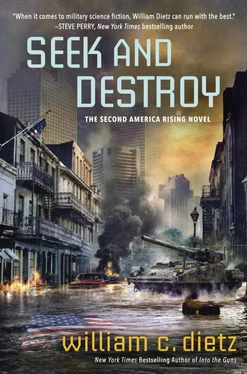
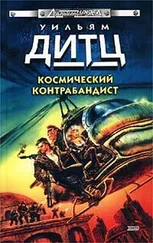
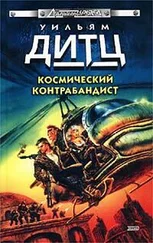
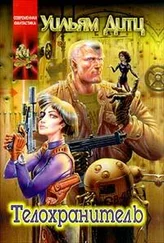
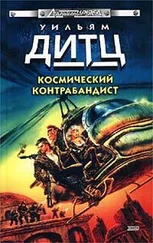
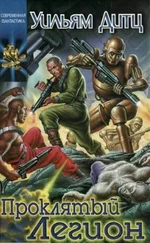
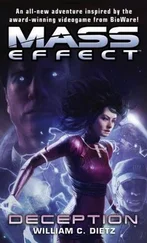

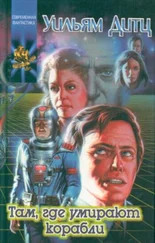
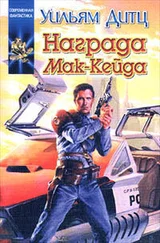
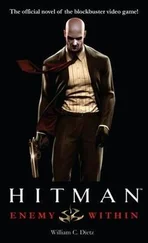
![Уильям Дитц - Избранные произведения в одном томе [Компиляция]](/books/389750/uilyam-ditc-izbrannye-proizvedeniya-v-odnom-tome-k-thumb.webp)
